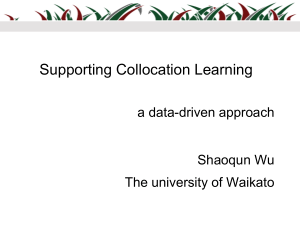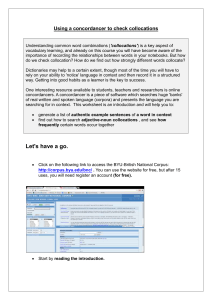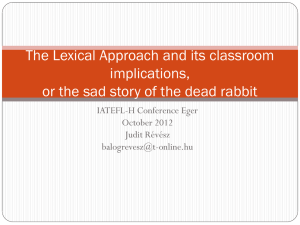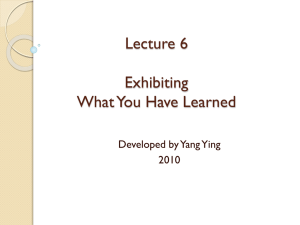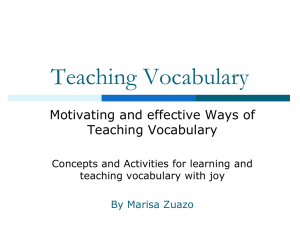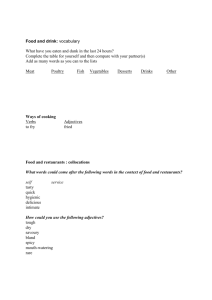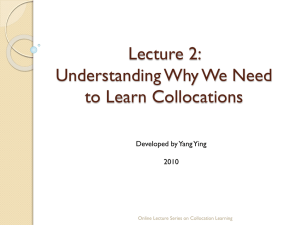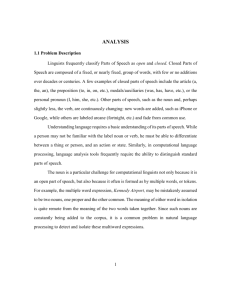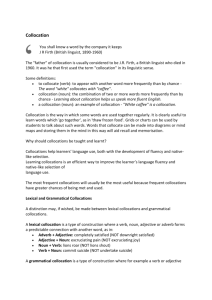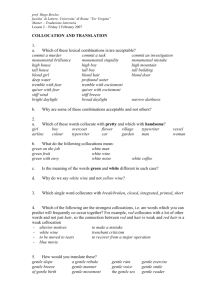A case study of learning collocation from extensive reading
advertisement
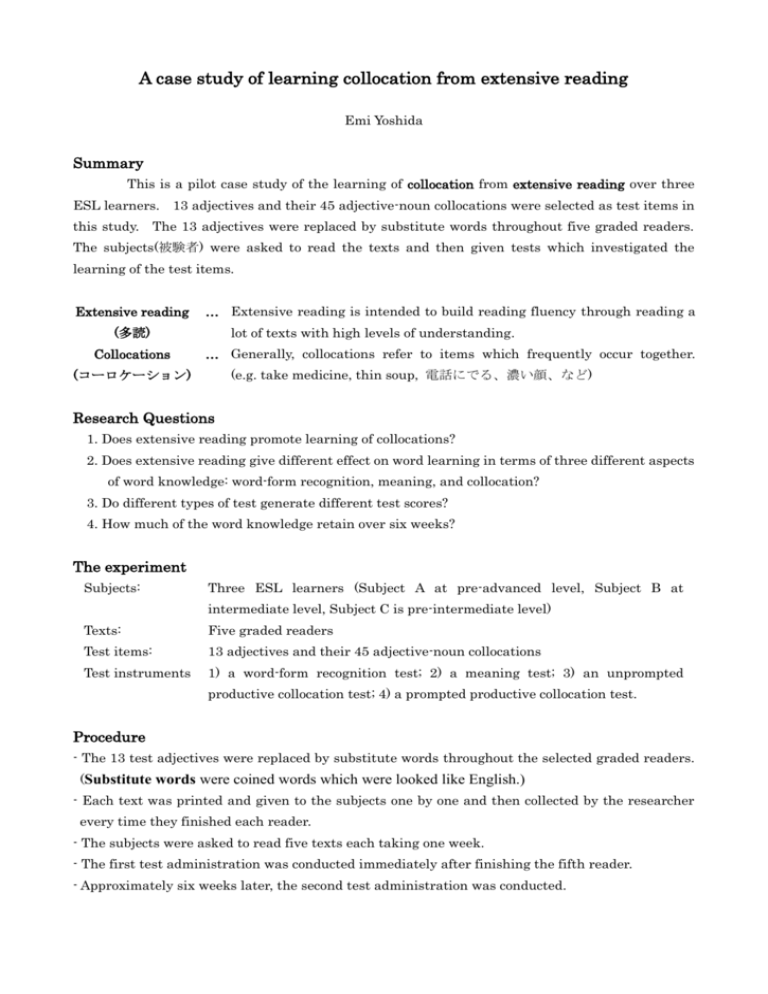
A case study of learning collocation from extensive reading Emi Yoshida Summary This is a pilot case study of the learning of collocation from extensive reading over three ESL learners. 13 adjectives and their 45 adjective-noun collocations were selected as test items in this study. The 13 adjectives were replaced by substitute words throughout five graded readers. The subjects(被験者) were asked to read the texts and then given tests which investigated the learning of the test items. Extensive reading … Extensive reading is intended to build reading fluency through reading a (多読) Collocations lot of texts with high levels of understanding. … Generally, collocations refer to items which frequently occur together. (コーロケーション) (e.g. take medicine, thin soup, 電話にでる、濃い顔、など) Research Questions 1. Does extensive reading promote learning of collocations? 2. Does extensive reading give different effect on word learning in terms of three different aspects of word knowledge: word-form recognition, meaning, and collocation? 3. Do different types of test generate different test scores? 4. How much of the word knowledge retain over six weeks? The experiment Subjects: Three ESL learners (Subject A at pre-advanced level, Subject B at intermediate level, Subject C is pre-intermediate level) Texts: Five graded readers Test items: 13 adjectives and their 45 adjective-noun collocations Test instruments 1) a word-form recognition test; 2) a meaning test; 3) an unprompted productive collocation test; 4) a prompted productive collocation test. Procedure - The 13 test adjectives were replaced by substitute words throughout the selected graded readers. (Substitute words were coined words which were looked like English.) - Each text was printed and given to the subjects one by one and then collected by the researcher every time they finished each reader. - The subjects were asked to read five texts each taking one week. - The first test administration was conducted immediately after finishing the fifth reader. - Approximately six weeks later, the second test administration was conducted. Results Table 1: The mean scores of the three subjects by test over the two test administrations Test 1 Test 2 Mean s.d. Mean s.d. Word-form recognition test (Max =13) 12.3 (95%) 1.2 12.7 (98%) 0.6 Meaning test (Max = 13) 4.5 (35%) 3.3 4.2 (32%) 2.0 Prompted productive collocation test (Max=113) 48.7 (43%) 10.0 49.0 (43%) 18.4 16.3 8.1 21.7 9.1 Prompted productive collocation test Discussion Research Question 1: Does extensive reading promote learning of collocations? The results of the unprompted productive collocation test and the prompted productive collocation test evidently show that the subjects learned collocations from their reading. Research Question 2: Does extensive reading have different effects on word learning in terms of three different aspects of word knowledge: word-form recognition, meaning, and collocation? The results show that the word-form recognition knowledge was enhanced the most. Almost all the test adjectives were learned. As for the meaning, less than half of the test words were learned by the subjects. It is not an easy task to determine the difference of learning between meaning knowledge and collocational knowledge. However, it is notable that many correct collocations were produced without obtaining the meaning of the words. In fact, collocational knowledge was used to guess the meaning of new words in some cases. Research Question 3: Do different types of tests generated different test scores? The results indicate that the subjects were able to produce more collocations on the prompted test. The prompted test was also beneficial to emphasize a focus on the learning of target items. Research Question 4: How much of the learning was retained over six weeks?. The results varied widely from subject to subject. Some test scores increased after six weeks. It was possible to presume that the learning from the reading was confirmed by going though the tests and picking up the word information from the first post-test.
